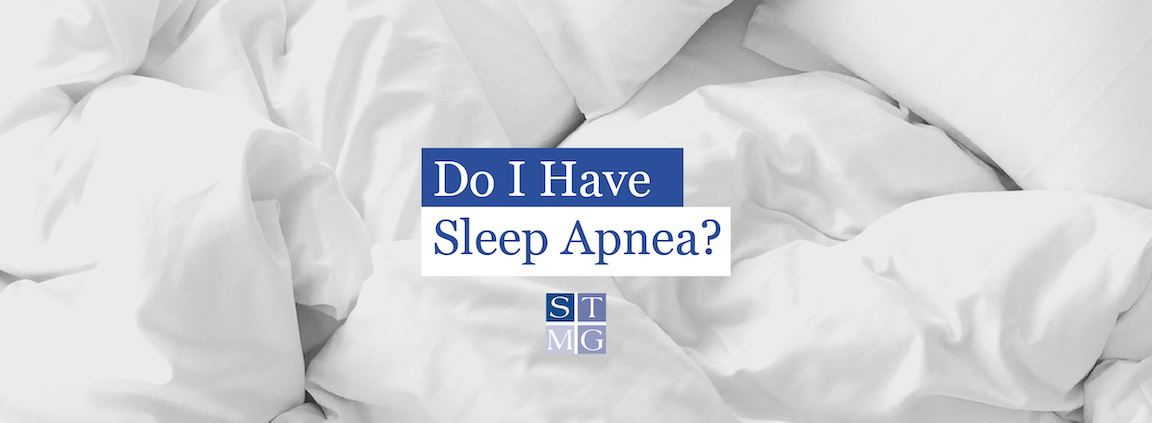Do I Have Sleep Apnea?
If you frequently feel tired or restless, despite getting a full night’s sleep, you could be one of the 22 million Americans who suffers from sleep apnea. Sleep apnea is a widespread and dangerous sleep disorder that occurs when the brain fails to receive sufficient oxygen. As a result, individuals with sleep apnea may snore and wake up frequently – even hundreds of times – throughout the night. This is the equivalent of the brain sending out the emergency signal, jolting the sleeper awake for a gasp of oxygen!
What Is Obstructive Sleep Apnea?
The most common form of sleep apnea is known as “obstructive sleep apnea.” This occurs when the breath passageway is physically blocked, most commonly due to tissue in the back of the throat collapsing and/or the tongue falling back in the throat.
Not only does obstructive sleep apnea result in daytime drowsiness and low quality of sleep; low oxygen levels can lead to many other health problems, including high blood pressure, stroke, type 2 diabetes, heart disease, and depression.
Sleep Apnea Help Is Available… Right Here In Nashville
Sleep and pulmonary specialists at St. Thomas Medical Group treat patients from all over Middle Tennessee for sleep apnea. While only a doctor can diagnose sleep apnea, if you or a loved one struggles with daytime sleepiness or poor quality of sleep, you may wish to begin the process of seeking evaluation and treatment by reviewing these statements…
You Might Have Sleep Apnea If You Say…
- “I’m tired all the time.” Daytime sleepiness can be one of the tell-tale signs of sleep apnea. Even if you’re getting a full eight hours of sleep, the quality may be very poor with sleep apnea. Because sleep apnea can occur during deep sleep, you may wake up many times and not even realize it – much less remember in the morning.
- “I wake up with headaches.” or “I always have headaches.” When your brain doesn’t get enough oxygen, blood vessels may dilate, causing headaches. If you wake up with a headache or frequently have headaches during the day, sleep apnea may be to blame.
- “I snore.” Maybe you don’t make this statement… but your significant other will gladly say it for you! Snoring is a classic symptom of sleep apnea. Snoring occurs when collapsed tissues vibrate against one another, as is the case with patients who have obstructive sleep apnea. While occasional or light snoring may not be anything to worry about, chronic or heavy snoring may be something you want to discuss with your primary care doctor or a pulmonary specialist.
- “I have high blood pressure.” When oxygen levels are low, the body may restrict blood vessels, causing blood pressure to rapidly rise. In patients who have sleep apnea, this may occur dozens or even hundreds of times throughout the night. Eventually, your body may get used to this jolt in blood pressure, resulting in high blood pressure during waking hours, as well.
Free Resources from The American Sleep Apnea Association
The American Sleep Apnea Association (ASAA) recommends these three tests for anyone who is concerned that they may have sleep apnea:
- The ASAA’s own Snore Score quiz. Six simple questions that may help evaluate symptoms.
- Epworth Sleepiness Scale. This test asks how likely a patient is to doze off in certain circumstances.
- Berlin Questionnaire. Ten questions in three categories.
<h2>See a Sleep Specialist In Nashville</h2>
Would you like to see a sleep specialist at St. Thomas Medical Group for an evaluation? Our sleep and pulmonary specialists work with patients experiencing a wide range of sleep disorders. Schedule an appointment online or call +1 (615) 964-5864.



